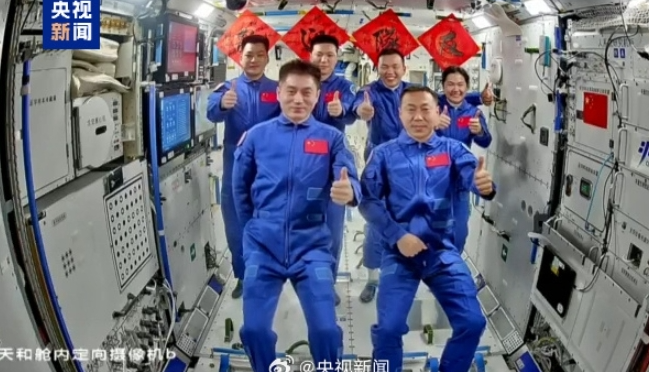China’s Space Station welcomed its youngest-ever crew on Wednesday, with the arrival of the Shenzhou-19 mission. Commander Cai Xuzhe, along with taikonauts Song Lingdong and Wang Haoze—both born in 1990—successfully docked with the space station shortly after their launch from Jiuquan Satellite Launch Center. This mission is significant not only for its youthful lineup but also for featuring the first female spaceflight engineer, marking a pivotal step in China’s manned space program.
The Shenzhou-19 mission aims to conduct various scientific experiments, including testing lunar bricks made from simulated lunar soil, which could serve as construction material for future lunar habitats. This mission highlights the importance of young taikonauts in preparing for upcoming lunar projects, as China aspires to land taikonauts on the moon by 2030.
During their six-month stay, the crew will perform extravehicular activities (EVAs), engage in public outreach, and conduct life sciences experiments, including studies on fruit flies in a sub-magnetic environment. The mission also reflects China’s ongoing commitment to enhancing gender diversity in its space program, with the inclusion of more female taikonauts expected to improve team dynamics.
As the mission progresses, the crew will receive the Tianzhou-8 cargo spacecraft, further solidifying the operational capabilities of the China Space Station. With advancements in spacecraft design and a focus on efficient payload transportation, the Shenzhou-19 mission represents a crucial step toward the realization of China’s ambitious space exploration goals.

